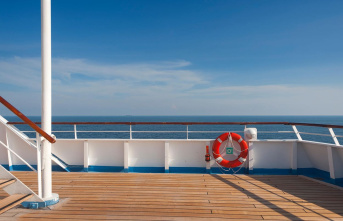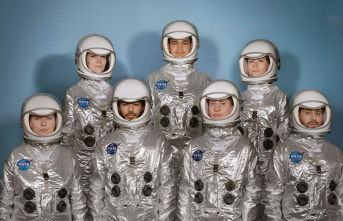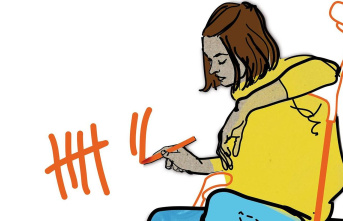The US space agency Nasa wants to make a new attempt on Saturday (from 8:17 p.m. CEST) to set off on its unmanned "Artemis" mission to the moon.
On Friday, however, NASA saw only a 60 percent chance that the weather conditions at Cape Canaveral in Florida will be good enough. Rain showers could occur especially at the beginning of the two-hour possible time window for the start - at the end of the period there is an 80 percent chance, Nasa announced on its website on Friday. There is another possibility to start on Monday.
Technical problems
The start had to be canceled last Monday due to technical problems. However, one is now optimistic that the causes have been remedied, according to Nasa's "Artemis" blog. Among other things, there had been problems with a tank leak and the fact that one of the four engines could not be cooled down to the required temperature quickly enough. A longer countdown should now ensure that more time is available for this process.
In addition, on Monday the weather seemed too uncertain for those responsible to start "Artemis I" within the two-hour launch window - the rocket can only take off at certain times, orbit the earth and then leave the earth's gravitational field in the necessary direction to break moon.
Planned flight
NASA wants to launch the "Orion" space capsule with the help of the "Space Launch System" heavy-duty rocket from the Cape Canaveral spaceport, then orbit the moon and land again in the Pacific around 40 days later. The "Artemis I" test flight also serves to be able to send people to Earth's satellite again in a few years with the "Artemis II" mission. The rocket system had already been extensively tested twice at the spaceport. Both times various problems had arisen. Nevertheless, NASA gave the green light for an unmanned flight last Monday.
With the "Artemis" mission, US astronauts should actually land on the moon again by 2024, for the first time a woman and a non-white person. This is now planned for 2025 at the earliest. Four astronauts are to be taken to lunar orbit in the Orion spacecraft, where two of them will then transfer to a landing vehicle. A kind of space station is also to be created on the moon, also as a basis for a manned flight to Mars - but this will only happen in the distant future.












